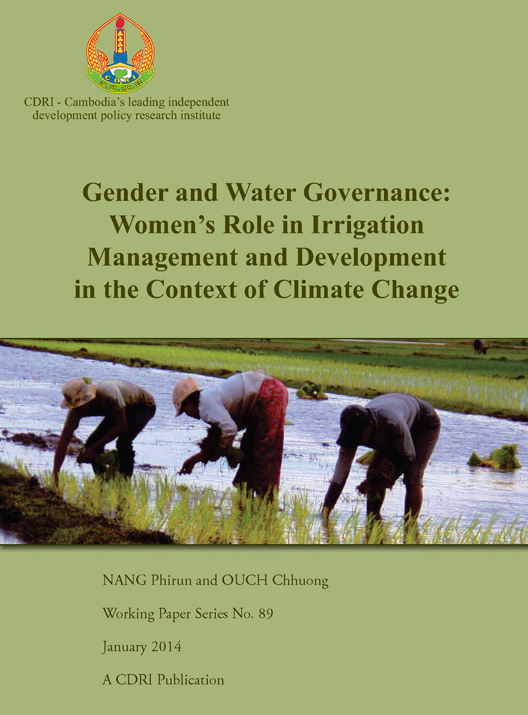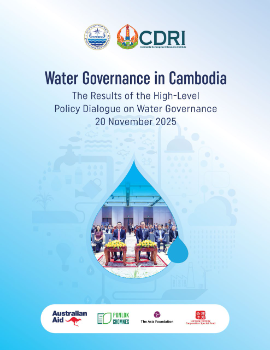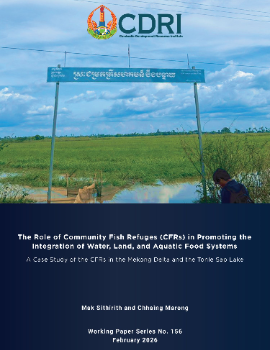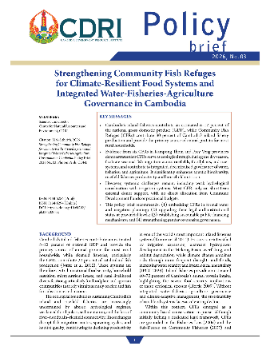
Gender and Water Governance: Women’s Role in Irrigation Management and Development in the Context of Climate Change
Keyword: Gender mainstreaming, water governance, climate change adaptation, irrigation management, women’s empowerment
Abstract/Summary
This study explores the role of women in irrigation management and agricultural development in Cambodia, particularly in the context of climate change. Drawing on fieldwork in three provinces—Kompong Thom, Pursat, and Kompong Chhnang—the research examines gender roles, constraints, and adaptive capacities within Farmer Water User Communities (FWUCs). Despite increasing participation, women remain underrepresented in decision-making positions due to socio-cultural norms, limited capacity, and household responsibilities. Climate change impacts such as floods, droughts, and pest infestations disproportionately affect women, especially female-headed households. The study highlights the need for gender-sensitive water governance and climate adaptation strategies. It recommends strengthening women’s capacity through training, reforming institutional rules to promote inclusion, expanding irrigation infrastructure, and integrating gender equality into policy frameworks. The findings underscore the importance of empowering women to participate equally in water resource management and climate resilience efforts, ensuring sustainable agricultural development and inclusive growth.
DOI: https://doi.org/10.64202/wp.89.201401



